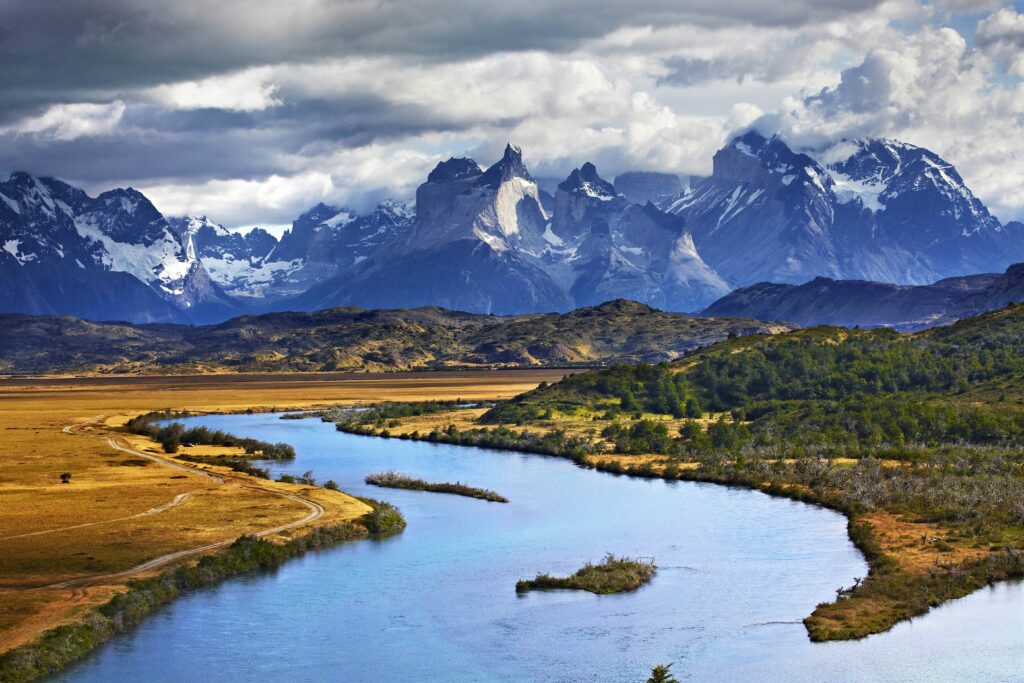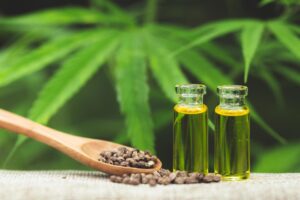In the windswept expanse of Argentina’s Patagonia, a quiet revolution is taking root. The region’s first modern-era hemp harvest, completed in April 2025, has ignited optimism among stakeholders who see it as a catalyst for economic growth and environmental renewal. This milestone, led by the nonprofit Fundación Gen, marks a bold step toward diversifying Patagonia’s agricultural landscape. With global demand for hemp surging, the harvest signals potential for job creation, sustainable innovation, and a reimagined economy in a region long tethered to traditional industries.
Sowing Seeds in Unlikely Soil
Patagonia’s rugged terrain, from the semi-arid steppes of Neuquén to the fertile valleys of Río Negro, is not the first place one might imagine for agricultural breakthroughs. Neuquén, better known for its oil and gas infrastructure, hosts vast open spaces where energy development has long overshadowed farming. Yet, at Mari Menuco, an experimental hemp plot has thrived, challenging assumptions about the region’s agricultural limits. Meanwhile, General Roca in Río Negro, with its established irrigation systems and apple orchards, offers a more traditional farming hub, ideal for testing hemp’s adaptability. These contrasting sites—1,200 miles apart—demonstrate Patagonia’s untapped potential. Fundación Gen cultivated and processed hemp at both locations, using a mix of NGO-owned and municipal machinery to separate seeds for oil and stalks for eco-friendly construction materials. The harvest yielded 2.5 metric tons of seeds and 4 tons of fiber across 10 hectares, a modest but promising start.
Harvest Hemp: A Global Commodity on the Rise
Hemp’s versatility is its superpower. The plant’s seeds fuel a booming market for oils and protein powders, projected to reach $10.6 billion globally by 2033, growing at 7.2% annually. Its fibers, meanwhile, are woven into textiles, construction materials, and bioplastics, with the industrial hemp market expected to hit $22.4 billion by 2030, expanding at 17.5% per year. Patagonia’s harvest aligns with this trajectory, tapping into a world hungry for sustainable alternatives. Stakeholders, including María Emilia Soria, mayor of General Roca, view hemp as a “cornerstone” for diversifying the local economy. By integrating into global supply chains, Patagonia could export Harvest Hemp to meet rising demand, positioning itself as a leader in Argentina’s nascent hemp industry, which has been revitalized by supportive regulations since 2020.

Harvest Hemp Wholesale: Building a Regional Supply Chain
The wholesale potential of Patagonia’s hemp is a key driver of excitement. Fundación Gen’s collaboration with municipal governments and private partners aims to create a robust supply chain, from seed to finished product. The Mari Menuco plot, for instance, processed seeds for wholesale distribution to health food companies, while stalks were decorticated for construction firms eyeing hempcrete—a lightweight, carbon-negative building material. In General Roca, the focus is on scaling production to supply textile manufacturers. Last year, Argentina’s hemp exports totaled $12 million, a figure stakeholders hope to triple by 2028 through wholesale channels. By establishing Patagonia as a hub for Harvest Hemp Wholesale, Fundación Gen envisions job growth—potentially 1,500 new roles in cultivation, processing, and logistics over the next five years—while leveraging the region’s infrastructure to compete globally.
Harvest Hemp White Label: Branding Patagonia’s Future
Beyond raw materials, Patagonia’s hemp harvest opens doors for white-label opportunities, where local producers can supply branded products under larger companies’ logos. Imagine hemp-based snacks, oils, or textiles labeled “Patagonian Pure” gracing shelves in Europe or North America. The white-label market for hemp products is growing at 9.9% annually, with clothing alone expected to reach $7.72 billion by 2034. Fundación Gen is already exploring partnerships with international brands, drawing on General Roca’s agricultural expertise to ensure quality. A pilot program in 2025 processed 500 kilograms of seeds into white-label hemp oil, fetching $15 per liter on the domestic market. This model not only boosts revenue but also elevates Patagonia’s global profile, marrying its pristine reputation with sustainable innovation. Harvest Hemp White Label could become a hallmark of quality, much like the region’s famed wool.
A Historical Echo with Modern Ambition
Hemp is no stranger to Argentina. In 1797, independence leader Manuel Belgrano proposed a hemp cultivation plan, only to be stifled by colonial rule. The crop flourished until the 1970s, when global drug policies halted its growth. Patagonia’s 2025 harvest revives this legacy, blending historical reverence with cutting-edge goals. The celebration in April drew diverse voices—government officials, academics from the National University of Río Negro, and industry leaders from the Federation of Business Entities. Their consensus: hemp could transform underutilized land into revenue-generating assets. In Neuquén, where farming employs just 3% of the workforce, hemp offers a lifeline for rural communities. In Río Negro, where agriculture accounts for 15% of GDP, it promises to deepen economic resilience.
Environmental Dividends of a Green Crop
Hemp’s economic allure is matched by its environmental credentials. Requiring minimal water and no pesticides, it aligns with Patagonia’s ethos of sustainability. The plant’s deep taproots prevent soil erosion, a pressing issue in Neuquén’s arid zones, where 20% of farmland faces degradation. Hemp also sequesters carbon—up to 15 tons per hectare—making it a climate-friendly crop. In General Roca, trials showed hemp improved soil health, boosting yields of subsequent crops by 10%. These benefits resonate with Fundación Gen’s mission to balance profit with planetary care, ensuring Patagonia’s harvest doesn’t just grow wallets but also restores ecosystems.
Challenges on the Horizon
The road ahead isn’t without hurdles. Scaling production demands investment in decortication equipment, estimated at $2 million for a regional processing facility. Regulatory compliance, while improved, remains complex, with THC limits requiring rigorous testing. Last year, 5% of Argentina’s hemp crops were destroyed for exceeding the 0.3% THC threshold. Workforce training is another gap—only 200 locals are currently skilled in hemp cultivation. Yet, stakeholders remain undeterred. Pilot projects funded by a $500,000 government grant are addressing these issues, with plans to train 1,000 workers by 2027.
A Vision Rooted in Community
At its core, Patagonia’s hemp harvest is a community-driven endeavor. Fundación Gen’s inclusive approach—partnering with indigenous groups, small farmers, and urban researchers—ensures benefits ripple widely. In Mari Menuco, 30 families contributed to the harvest, earning $1,200 each, a significant sum in a region where the average monthly income is $800. General Roca’s cooperatives, meanwhile, are eyeing hemp as a way to empower women, who make up 40% of the agricultural workforce. By fostering equity, the harvest plants seeds of social as well as economic growth.
Looking to the Future
Patagonia’s first hemp harvest is more than a single season’s yield—it’s a blueprint for transformation. With global markets clamoring for sustainable solutions, the region stands poised to redefine its economic narrative. By 2030, stakeholders aim to cultivate 1,000 hectares, generating $50 million annually and creating 5,000 jobs. From Harvest Hemp to Harvest Hemp Wholesale and Harvest Hemp White Label, Patagonia’s vision is clear: a thriving, green economy that honors its land and people. As the world watches, this southern frontier may just prove that from humble seeds, mighty futures grow.
Discover the future of sustainability with NanoHempTechLabs’ premium wholesale hemp products, sourced from Patagonia’s pioneering 2025 harvest! Our Harvest Hemp Wholesale line offers high-quality seeds, oils, and fibers, perfect for health foods, textiles, and eco-friendly construction. With global demand soaring—$22.4 billion projected by 2030—our Harvest Hemp White Label solutions empower your brand to shine. Grown in Patagonia’s pristine soils, our products meet rigorous standards, ensuring purity and potency. Join the green revolution and elevate your business with NanoHempTechLabs. Schedule a call today to explore exclusive wholesale opportunities and grow together!
Reference:
- Adesina, I., Bhowmik, A., Sharma, H., & Shahbazi, A. (2020). A review on the current state of knowledge of growing conditions, agronomic soil health practices and utilities of hemp in the united states. Agriculture, 10(4), 129. https://doi.org/10.3390/agriculture10040129
- Deng, G., Du, G., Yang, Y., Bao, Y., & Liu, F. (2019). Planting density and fertilization evidently influence the fiber yield of hemp (cannabis sativa l.). Agronomy, 9(7), 368. https://doi.org/10.3390/agronomy9070368
- Giupponi, L., Leoni, V., Carrer, M., Ceciliani, G., Sala, S., Panseri, S., … & Giorgi, A. (2020). Overview on italian hemp production chain, related productive and commercial activities and legislative framework. Italian Journal of Agronomy, 15(3), 1552. https://doi.org/10.4081/ija.2020.1552





